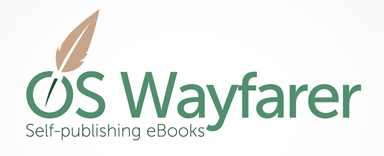Part 2 – eBook Research and Planning
Introduction
Our eBook Approach – Research and Planning is Part 2 of our series: Our eBook Self-publishing Approach (Catch Part 1).
For the purposes of discussion, we want to separate Research and Planning. We see them as separate sides of the one coin. Let’s consider Research first.
Research
Questions, questions and more questions
To us, research is about identifying a good destination to visit. We want to know that a good holiday awaits us. So, what are the questions we ask?
Perhaps the first question to ask is – Why should we visit this destination? Of course, to answer this question there are many sub-questions. For example:
- Is this destination on our bucket list?
- Is this a popular destination for tourists?
- What have we heard on the “grapevine” about this place?
- What are the major tourist attractions?
- Does this destination have an interesting 20th-century history?
- Will we find the culture interesting?
- What types of day tours are available?
- Are there good opportunities to take photographs?
- Are there any interesting/controversial figures associated with the destination?
- Is the food interesting? Are there any interesting markets?
Our research will involve answering these questions to reach a definitive answer to the overall question: “Should we visit this destination?”.
Irrespective of the eBook you plan to write, research will be required, and the first step will be to brainstorm a set of questions to provide you with the information/data for your eBook.
Initially, you’ll need to carefully define the rationale for your eBook – “What is this eBook going to be about?”; “Why am I writing this eBook?” Settling these early overarching questions will set the direction for your research. For example, we can’t really start in-depth research until the destination is identified.
The research for our forthcoming 2018 trip to Athens is detailed in a series of posts: “Should we visit Athens?”.
Our eB ook – Five Days on the Isle of Skye can be found on:
ook – Five Days on the Isle of Skye can be found on:
Amazon (Kindle): The United States, United Kingdom, and Australia
Smashwords (EPUB), Smashwords also distributes to Oyster, Scribd, Yuzu, Blio and Inktera (formerly Page Foundry) and reaches OverDrive (world’s largest library ebook platform serving 20,000+ libraries), Baker & Taylor Axis 360, Gardners (Askews & Holts and Browns Books for Students), and Odilo (2,100 public libraries in North America, South America and Europe)
Tools
To start your research, the natural and sensible thing to do is use your favourite search engine to seek answers to your questions. This is what we do. However, you can soon become overwhelmed with information; so, the question is – what to do with all this information?
Our solution is to save interesting website articles to read later. Our tool of choice to do this is Evernote (there is a free version and a premium version); it provides an electronic system to store and retrieve your research.
Evernote allows you to save articles in notebooks and tag these articles. Evernote will advocate using the least number Notebooks and as many tags as required. We are old folder-people and old habits die hard! So invariably we end up with too many notebooks and too few tags – but we are getting better. (Note: there is limit to Notebooks in Evernote but not Tags). Fortunately, Evernote allows Notebooks to be placed in a Stack thereby organising the Notebooks. Evernote can be easily imagined using a filing cabinet analogy. The premium version allows two or more people to share the notebooks – useful. We like it.
We used Google as our search engine and there are a couple of reasons for this: first, there is an Evernote extension which allows website articles to be clipped to Evernote. Secondly, there is also a Send-to-Kindle extension which allows us to send website articles to our Kindles to read at our leisure.
Making sense of the information
Ever felt overwhelmed with all the information you have at your fingertips? Well, we do. Our solution is to build Mind Maps about a topic. For example, we are about to start building a Mind Map about Street Art for our eBook about Athens. We find this helps us synthesise information thereby building an understanding of the topic.
Now, we don’t know much about Street Art. However, it is a theme for our Athens eBook and we want to have a draft chapter written before we arrive in Athens.
By using Google, Evernote, our Kindles, and our Mind Maps, we know we’ll be able to draft our Street Art chapter.
Planning
Once we have researched the questions identified under Research, we’ll know if we are going to visit a destination. Once we know our destination, a whole set of new questions arise:
- How are we going to get there?
- Where and how long are we going to stay?
- How does our budget align with the costs?
- What do we want to do? Are there any good tours?
- Are there any good markets?
- Where are we likely to eat? What type of food are we looking for?
- Can we build a draft schedule?
- How can we support our themes (e.g. architecture, Street Art, Food, Concerts, Landmarks, famous people etc)?
- How can we learn about the culture?
- What time of year will we visit?
The output of the planning stage is a fully costed schedule for our holiday (eBook site visit).
See Our eBook Self-publishing Approach – Part 1
See more Self-publishing articles
Views: 406









Leave A Comment